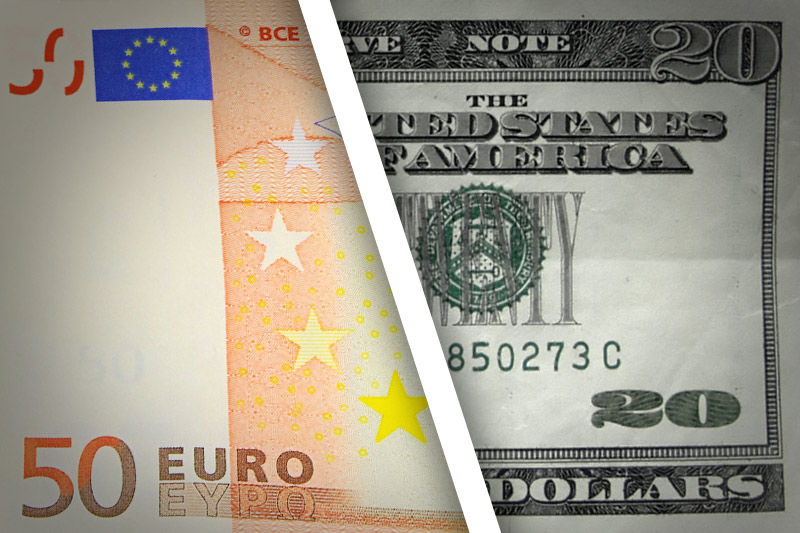Investing.com -- The euro posted moderate gains against the dollar on Friday extending its rally to a third consecutive session, amid mixed U.S. economic data and continued instability regarding the Greek debt crisis.
EUR/USD gained 0.0039 or 0.36% to end the session at 1.0987. The pair has still yet to move back above 1.10 since falling nearly 1% on Tuesday when the dollar appreciated by its highest one-day amount in almost two years.
For the month, the euro fell roughly 2% against the dollar after opening May above 1.12. Wild fluctuations in the pair throughout May ostensibly kept currency traders on their toes. The pair surged to a three-month high of 1.1467 on May 15, before falling to a monthly low of 1.0819 on May 27, a spread of nearly 6.5%.
The pair spiked to a session-high of 1.0990 roughly an hour after U.S. GDP for the first quarter was revised downward to minus 0.7% in U.S. morning trading. The reading was in line with analysts' expectations of a downward revision of minus 0.8%. When the U.S. Bureau of Economic Analysis (BEA) initially released first quarter GDP, it reported an increase of 0.2% from the previous quarter.
A surge in imports to 5.6% from an initial gain of 1.8%, linked to an abrupt unloading of imports at West Coast ports was thought to be responsible for the revision. A port work stoppage throughout the winter weighed on the U.S. economy in the first quarter. First quarter GDP was also sluggish in 2014, when it fell by 2.1% from the previous quarter. For the second quarter, U.S. GDP is expected to gain roughly 3% during the period as transitory factors recede.
Separately, a rebound over the last two weeks lifted the University of Michigan Consumer Sentiment Survey to 90.7, above a mid-month flash of 88.6. The reading is still down significantly from April's level of 95.9. Consumer expectations, meanwhile, fell to 84.2 from 88.8, illustrating diminished confidence in the long-term outlook of the labor market.
In Brussels, there were conflicting reports of the level of progress made in ongoing talks between Greece and its troika of creditors. Officials from the euro zone said late Thursday evening that a deal which would unlock critical aid to Athens was "not imminent," in spite of contrary reports. Earlier, Greece was hopeful a solution could be reached by Sunday. Greek officials are growing increasingly desperate to reach a deal before several obligations are due to the International Monetary Fund in June totaling more than €1.5 billion.
Yields on Greek 10-Year bonds rose 12 basis points to 10.86%. Over the last year, the yields are up nearly 500 basis points. Yields on German 10-Year bunds fell four basis points to 0.49%, while yields on U.S. 10-Year Treasuries dropped one basis point to 2.12%. The spread between U.S. and German 10-year bonds fell to 163 basis points.
The U.S. Dollar Index, which measures the strength of the greenback versus a basket of six other major currencies, fell 0.18% to 96.94. Earlier in the week, the index soared to a five-week high at 97.88.
